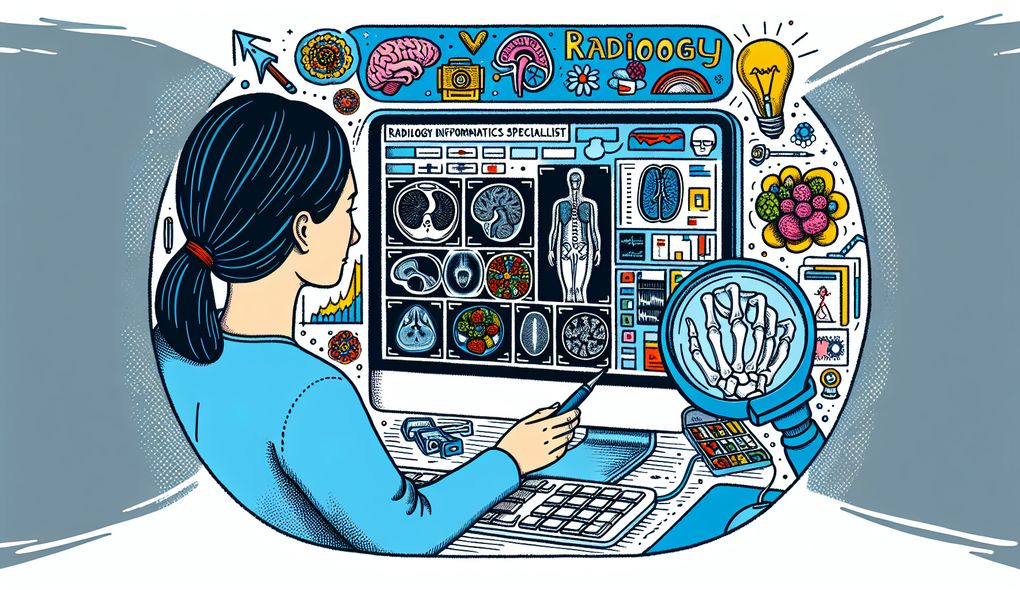How would you ensure the integrity and security of imaging data and related patient information?
INTERMEDIATE LEVEL

Sample answer to the question:
To ensure the integrity and security of imaging data and related patient information, I would implement several measures. Firstly, I would establish strict access controls, limiting who can view and modify the data. This would include using unique usernames and passwords for each user and implementing multi-factor authentication. Secondly, I would encrypt the data both at rest and in transit to prevent unauthorized access. Additionally, I would regularly backup the data to prevent loss or corruption. Lastly, I would regularly audit and monitor the system for any suspicious activities or breaches.
Here is a more solid answer:
To ensure the integrity and security of imaging data and related patient information, I would leverage my strong technical skills with healthcare information technology systems and my knowledge of data privacy and security principles in healthcare. Firstly, I would conduct a thorough risk assessment to identify potential vulnerabilities in the system. Based on the assessment, I would implement access controls, such as unique usernames and passwords for each user and multi-factor authentication, to restrict unauthorized access. Additionally, I would encrypt the data both at rest and in transit using industry-standard encryption algorithms. Regular backups of the data would be performed to prevent loss or corruption. To monitor for any suspicious activities or breaches, I would regularly audit and monitor the system, utilizing advanced security tools and techniques. Lastly, I would stay updated on the latest industry trends and advancements in radiology informatics to ensure compliance with legal and regulatory standards.
Why is this a more solid answer?
The solid answer builds upon the basic answer by providing more specific details and examples to demonstrate the candidate's technical skills and knowledge. It also emphasizes the importance of conducting a risk assessment and staying updated on industry trends. However, it could still be improved by providing more examples of specific encryption algorithms and security tools that the candidate would utilize.
An example of a exceptional answer:
To ensure the integrity and security of imaging data and related patient information, I would leverage my strong technical skills with healthcare information technology systems and my knowledge of data privacy and security principles in healthcare. Firstly, I would conduct a comprehensive risk assessment, considering various potential threats and vulnerabilities, to develop a robust security strategy. Access controls would be implemented, including unique usernames and passwords, multi-factor authentication, and role-based access control, to limit unauthorized access to the data. Encryption would be employed both at rest and in transit, utilizing industry-standard algorithms such as AES-256. Regular backups would be performed, stored securely offsite, and regularly tested for data restoration. Intrusion detection systems and security information and event management tools would be used to monitor the system for any suspicious activities or breaches. Furthermore, I would implement data loss prevention measures, such as data classification and monitoring of data transfers, to prevent unauthorized data disclosure. Compliance with legal and regulatory standards would be ensured through regular audits and staff training. Additionally, I would actively participate in industry conferences and forums to stay updated on the latest advancements in radiology informatics and security best practices.
Why is this an exceptional answer?
The exceptional answer provides a comprehensive and detailed response, covering a wide range of security measures and best practices. It demonstrates the candidate's strong technical skills and knowledge of data privacy and security principles. The answer goes beyond the basic and solid answers by including additional measures such as role-based access control and data loss prevention. It also emphasizes continuous learning and staying updated on industry advancements.
How to prepare for this question:
- Familiarize yourself with healthcare information technology systems and their role in radiology informatics.
- Gain a deep understanding of data privacy and security principles in healthcare, including relevant regulations such as HIPAA.
- Research different encryption algorithms and security tools commonly used in healthcare IT systems.
- Stay updated on industry trends and advancements in radiology informatics and security best practices.
- Practice answering similar questions to improve your ability to articulate your knowledge and experience in ensuring data integrity and security.
What are interviewers evaluating with this question?
- Technical skills with healthcare information technology systems
- Knowledge of data privacy and security principles in healthcare

